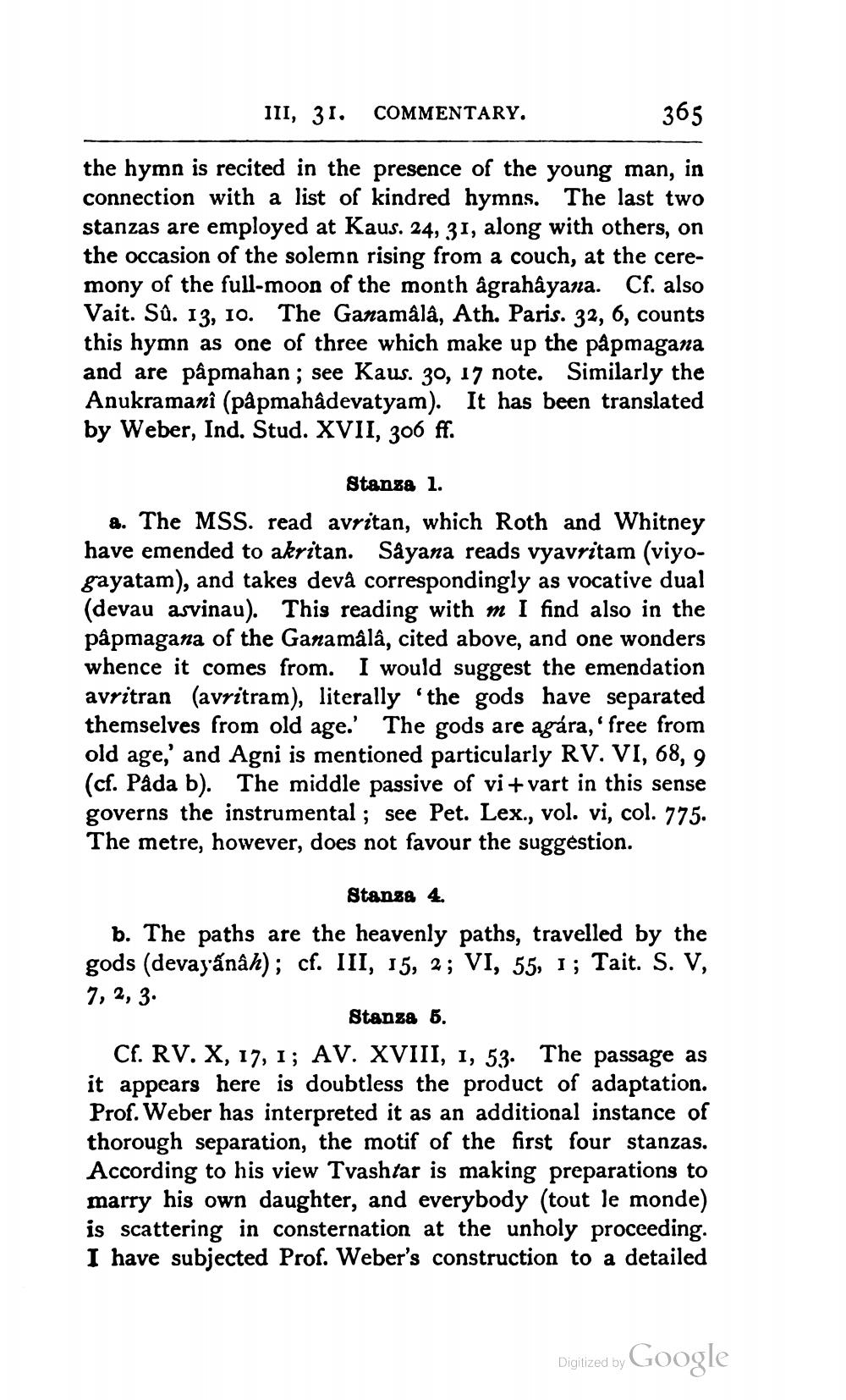________________
III, 31. COMMENTARY.
365
the hymn is recited in the presence of the young man, in connection with a list of kindred hymns. The last two stanzas are employed at Kaus. 24, 31, along with others, on the occasion of the solemn rising from a couch, at the ceremony of the full-moon of the month agrahayana. Cf. also Vait. Sû. 13, 10. The Ganamâlâ, Ath. Paris. 32, 6, counts this hymn as one of three which make up the papmagana and are pâpmahan ; see Kaus. 30, 17 note. Similarly the Anukramani (påpmahadevatyam). It has been translated by Weber, Ind. Stud. XVII, 306 ff.
Stanza 1. a. The MSS. read avritan, which Roth and Whitney have emended to akritan. Sayana reads vyavritam (viyogayatam), and takes devå correspondingly as vocative dual (devau asvinau). This reading with m I find also in the påpmagana of the Ganamâlâ, cited above, and one wonders whence it comes from. I would suggest the emendation avritran (avritram), literally the gods have separated themselves from old age.' The gods are agára,' free from old age,' and Agni is mentioned particularly RV. VI, 68, 9 (cf. Pada b). The middle passive of vi + vart in this sense governs the instrumental ; see Pet. Lex., vol. vi, col. 775. The metre, however, does not favour the suggestion.
Stanse 4. b. The paths are the heavenly paths, travelled by the gods (devayanâh); cf. III, 15, 2; VI, 55, 1; Tait. S. V, 7, 2, 3.
Stanza 5. Cf. RV. X, 17, 1; AV. XVIII, 1, 53. The passage as it appears here is doubtless the product of adaptation. Prof. Weber has interpreted it as an additional instance of thorough separation, the motif of the first four stanzas. According to his view Tvashtar is making preparations to marry his own daughter, and everybody (tout le monde) is scattering in consternation at the unholy proceeding. I have subjected Prof. Weber's construction to a detailed
Digized by Google
Digitized by




